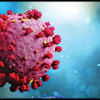Covid-19: We can’t let our guard down yet

Bangladesh might potentially be experiencing a new wave of Covid-19 right now. The previous wave, which saw a rise in the second week of June this year and started losing momentum towards the end of July, was considered the fifth wave. During that period, around 160 people died due to the respiratory disease. Since the last week of August this year, the Covid infection rate has spiked again. As of writing this piece on Monday, the infection rate stands at 13.58 percent, and fatalities are being reported every day.
Now, this development might come as a surprise to many who had felt optimistic about the "end" of Covid, especially after WHO Director-General Tedros Adhanom Ghebreyesus said earlier this month that the end of Covid was in sight. "We are not there yet. But the end is in sight," he said. And although we focused on the second part of that statement due to our innate optimism, perhaps it is the first that should have grabbed our attention and given us a reality check. The truth is, at this point in time, there is no reason for us to let our guard down or become complacent.
The recent rise in cases – dominated by the Omicron BA.5 and BA.2 subtypes, as revealed by a study by the International Centre for Diarrhoeal Disease Research, Bangladesh (icddr,b), based on genome sequencing of 38 samples collected between July 23 and September 9, as reported by Prothom Alo – can be attributed to our relaxed attitude towards the coronavirus in recent months. With fatalities declining and people getting used to living with the virus, adherence to social distancing protocols has been mostly absent from public life. One would see people hanging out in cramped spaces, or entering lifts without a care for wearing masks. Even in restaurants or shops or other service-providing hotspots, where "No mask, no entry" or "No mask, no service" is written in big, bold letters, people hardly bother to keep their masks on. Meetings and public gatherings are taking place in full swing, increasing people's risks of catching the virus even more. With the election coming up, such gatherings are expected to only increase in frequency and size, exacerbating the risk of infection further.
Another issue that needs immediate attention is the unwillingness of people to get vaccinated. While the government has done a commendable job of organising mass vaccination campaigns across the country, in phases, including special vaccination programmes for children aged 5-12, people in general are still somewhat reluctant to avail this opportunity to boost their immunity against the virus. According to media reports, around 3.3 million people across Bangladesh are yet to take their first vaccine shot. About 9.4 million people have not opted to take the second dose. While 77 percent of the country's population have taken the first dose of Covid vaccine and 71 percent have taken the second dose, a meagre 26 percent have taken the third dose, so far. This figure paints a grim picture and defeats the overarching purpose of the national immunisation programme of eliminating the virus through reinforced immunity.

Unfortunately, even after full immunisation (comprising the three standard doses), the risk of the sneaky Omicron subvariants dodging the immune system and infecting people remains, though the intensity of such virus attacks are not always severe.
To address this risk, the government should consider including the US FDA-authorised bivalent vaccines as an "updated booster" dose in the national immunisation plan. According to the FDA, the bivalent vaccines contain two messenger RNA (mRNA) components of Sars-CoV-2 virus: one of the original strain of the virus and the other one common between the BA.4 and BA.5 lineages of the Omicron variant. It is expected that this booster will help in significantly curbing the risk of being infected with the Omicron subvariants. A study by The New England Journal of Medicineassessing the efficacy and safety of the bivalent vaccines suggests that it provides better immunogenicity and safety.
While securing bivalent vaccines would be tough, given the demand, the bigger challenge perhaps is getting people to get vaccinated in the first place. Along with the immunisation drives, the government should run awareness campaigns to promote behavioural change and encourage people to take Covid jabs. And the target groups should be those who have not availed the booster shots, and also those who have remained outside the purview of the immunisation programme. A study titled "Covid-19 vaccine hesitancy among the adult population in Bangladesh: A nationwide cross-sectional survey," available on the website of the National Library of Medicine in the US, suggests that the country faces vaccine hesitancy among the population at a rate of 46.2 percent. Trust in the efficacy of the vaccines, concerns about its side effects – including the notion that it can cause autism – and conspiracy theories involving the intention of drug-manufacturing companies and countries are some of the issues that are keeping people from taking the Covid vaccine shots, especially in the rural areas. And even if one is willing to take the vaccine, access is not always easily available, especially in remote areas, affecting the overall vaccination coverage.
Another study, titled "Covid-19 vaccination coverage is extremely low among older population in Bangladesh: Findings from a cross-sectional study," also available on the website of the National Library of Medicine, based on the study of a sample of 1,045 Bangladeshi individuals aged 60 years or above, indicate that older adults have a higher risk of remaining unvaccinated for various reasons, including limited access to vaccines and lack of information.
These issues need to be looked at by the authorities very seriously in order to encourage every single individual to get vaccinated. Behavioural and perception change among the public about Covid vaccines and easy access should be top priorities for the government right now.
The National Technical Advisory Committee on Covid-19 has recently, in the light of the new developments, issued five recommendations for the public, which include wearing masks and maintaining basic hygiene practices, discouraging social gatherings, and getting vaccine jabs. The government could also consider giving a fourth booster dose to the elderly and those working in the frontlines in order to boost their immunity as they fall in the high-risk category.
People should also play their part by adhering to the Covid safety protocols. While the government is organising multiple vaccination drives, it is up to the people to act responsibly and get the jabs, to keep themselves and their loved ones safe. The responsibility falls on all of us. After all, as the saying goes, "No one is safe until everyone is safe." While it would be nice to see the end of Covid, in reality, we are not there yet.
Tasneem Tayeb is a columnist for The Daily Star. Her Twitter handle is @tasneem_tayeb

 For all latest news, follow The Daily Star's Google News channel.
For all latest news, follow The Daily Star's Google News channel. 









Comments